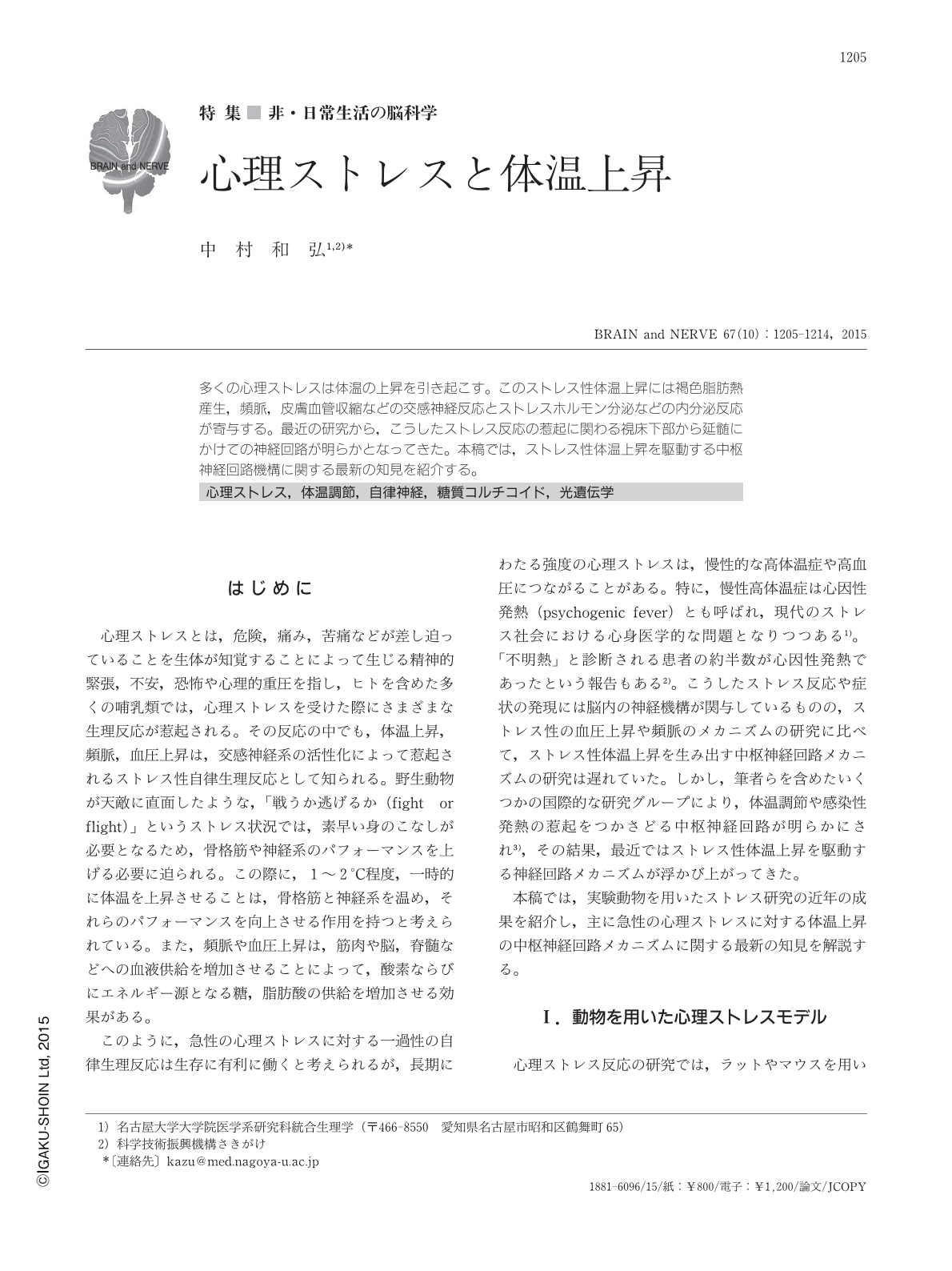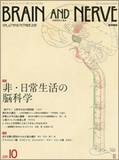Japanese
English
- 有料閲覧
- Abstract 文献概要
- 1ページ目 Look Inside
- 参考文献 Reference
多くの心理ストレスは体温の上昇を引き起こす。このストレス性体温上昇には褐色脂肪熱産生,頻脈,皮膚血管収縮などの交感神経反応とストレスホルモン分泌などの内分泌反応が寄与する。最近の研究から,こうしたストレス反応の惹起に関わる視床下部から延髄にかけての神経回路が明らかとなってきた。本稿では,ストレス性体温上昇を駆動する中枢神経回路機構に関する最新の知見を紹介する。
Abstract
Many types of psychological stress induce hyperthermia. The stress-induced elevation of body temperature is caused by sympathetic responses including brown adipose tissue thermogenesis, tachycardia, and cutaneous vasoconstriction as well as by neuroendocrine responses including stress hormone release via the hypothalamo-pituitary-adrenal (HPA) axis. Recent studies have revealed that the hypothalamic and medullary neural circuitry for driving these stress responses. In this circuitry, the dorsomedial hypothalamus serves as a hub for the central stress signaling: first, it connects the sympathetic efferents with medullary sympathetic premotor neurons to drive the sympathetic responses; second, it connects the neuroendocrine efferents with the HPA axis to drive the stress hormone release. The findings from the animal experiments would be relevant to understand the etiology of the chronic stress-induced hyperthermia "psychogenic fever", a psychosomatic symptom in humans. In this review, I describe the current understanding of the central circuit mechanism for the development of psychological stress-induced hyperthermia, incorporating recent important discoveries.

Copyright © 2015, Igaku-Shoin Ltd. All rights reserved.


